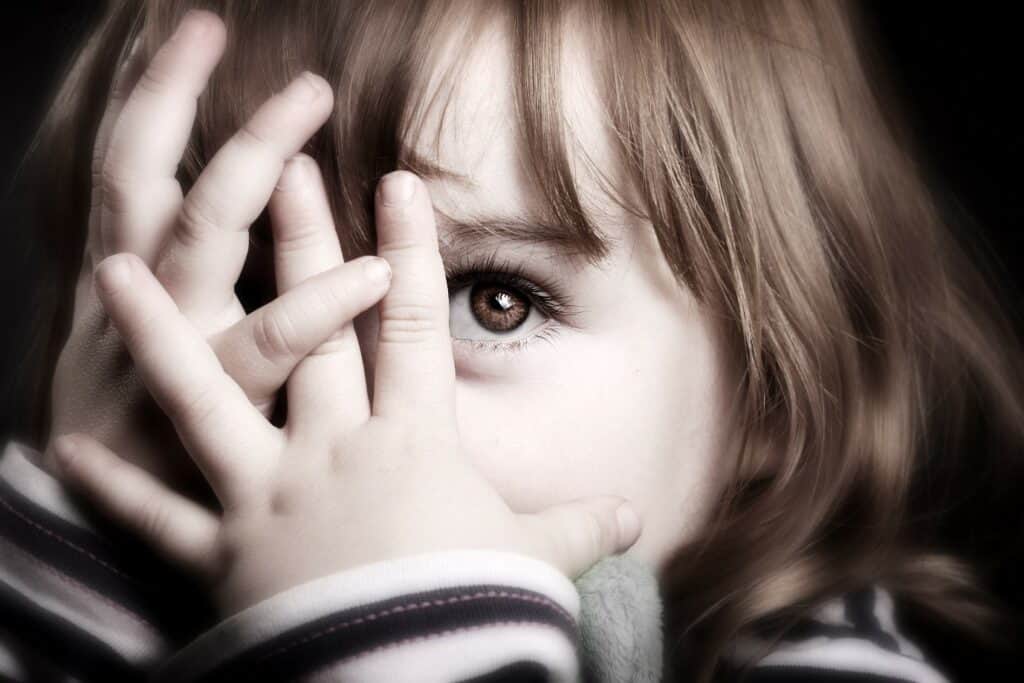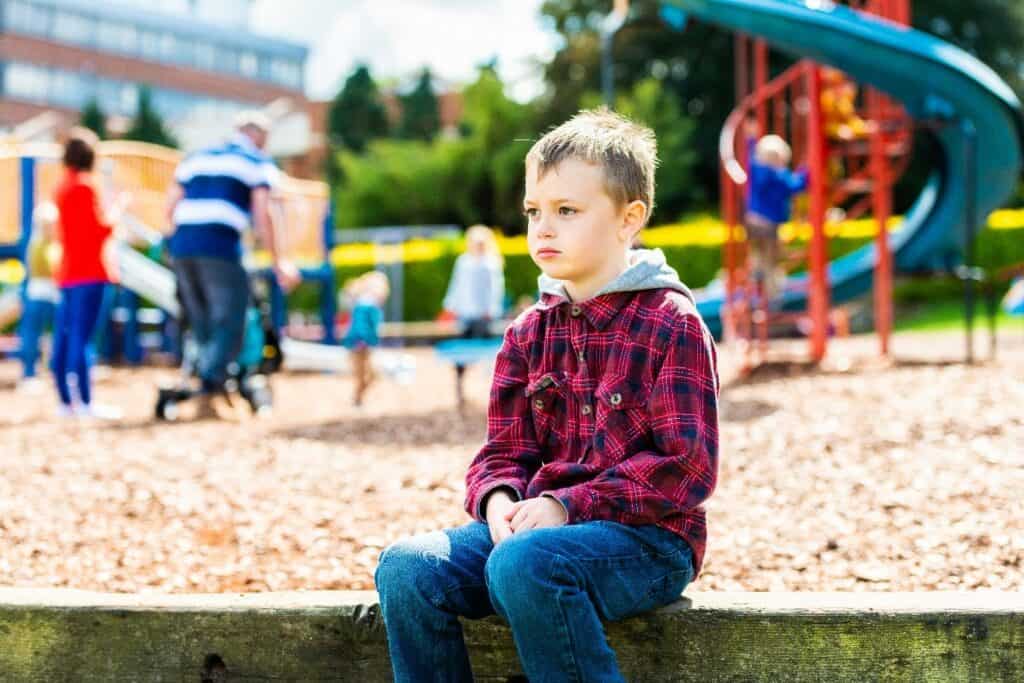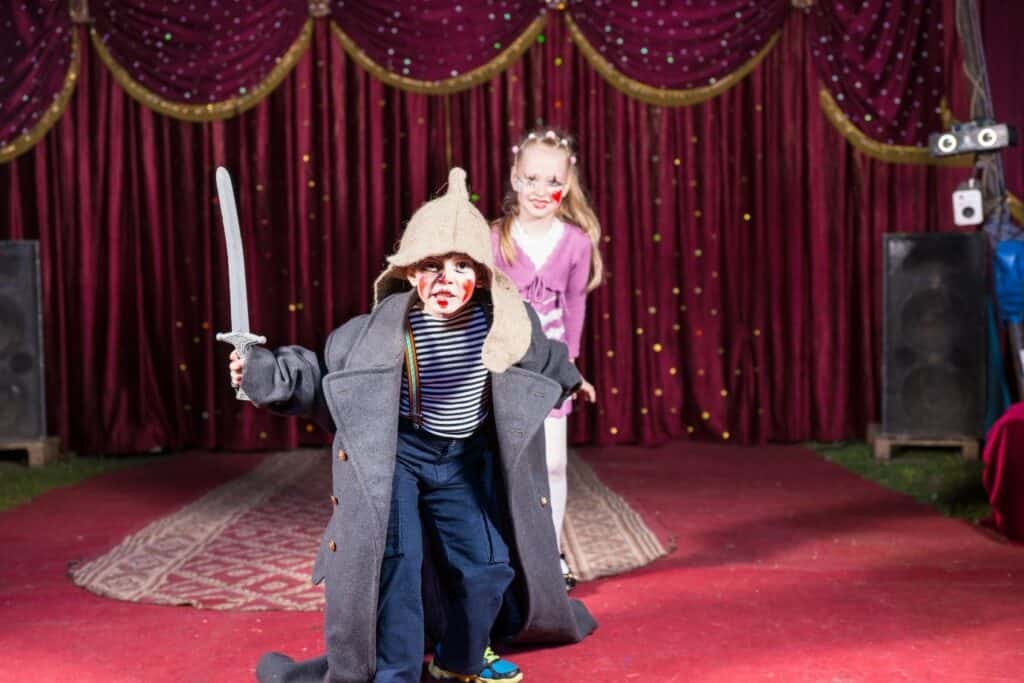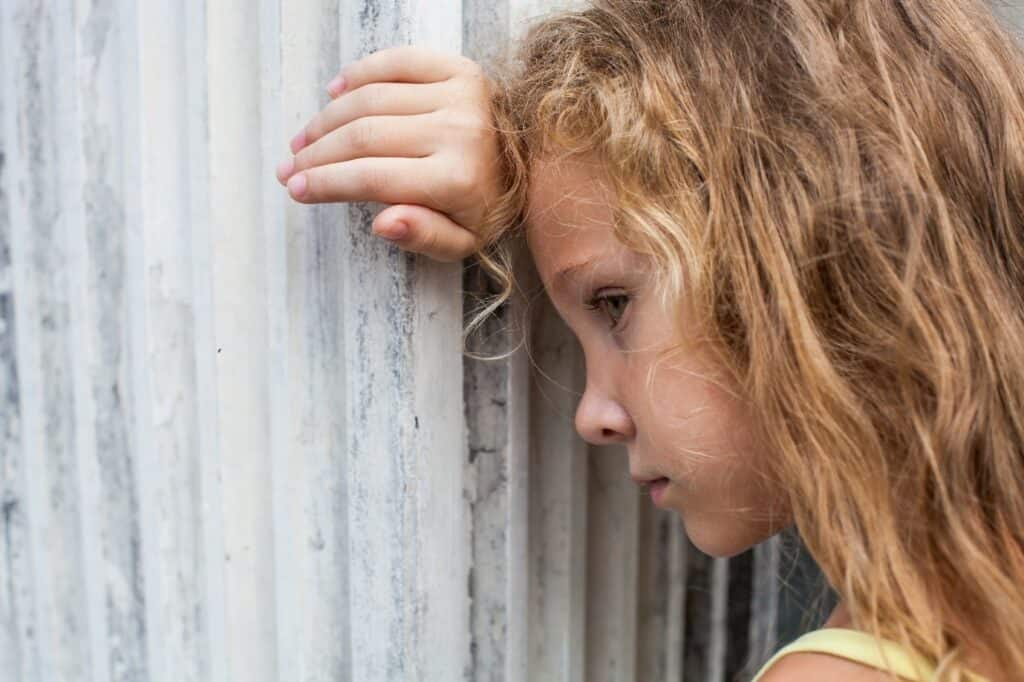Do not confuse shyness with social anxiety. Children can suffer with social anxiety disorder usually because they have an extreme fear of other people judging them. These children’s fear of embarrassment is so great they avoid social situations such as speaking in front of the class and going to birthday parties.
It may be difficult to tell the difference between social anxiety and shyness in your child. If you notice them feeling uncomfortable at social events or see them standing back from a group of children playing, you may question if something is going on.
A large Australian scale study revealed that 6.6% of young people experienced an anxiety disorder of some sort. From the participants, 2.3% had social anxiety disorder. Social anxiety can start in children between the ages of 8 and 15.
Is your Child Shy?
Shy children have problems meeting new people. While they may sometimes be shy with family and close friends, it is usually noticeable with strangers. A shy child has trouble initiating conversations or answering questions. But after spending time with someone new, a child will usually start to feel more comfortable and begin interacting.
Shy children are often softly spoken and sometimes awkward in social situations but this usually only lasts a short time. Shyness is not normally a major problem and children will outgrow it over time.
Is your Child Experiencing Social Anxiety?
Children with social anxiety have a fear of being judged by others. They worry about making mistakes or embarrassing themselves at school in front of the class and strangers. A child with social anxiety may worry out loud about making a mistake. And their fear can paralyse them. Social anxiety will usually not improve without help.
When a child has social anxiety, it is difficult for them to make friends. They also find it hard to meet new people and even talk to friends, and can find other situations and activities difficult. This can include eating in restaurants, playing sport, using public bathrooms or reading out loud in front of others.
Symptoms of Social Anxiety Disorder
Children with social anxiety disorder can demonstrate their anxiety through temper tantrums, crying, refusing to speak in public or clinging to their parents. They may display physical symptoms such as blushing, nausea, stomach aches, have trouble breathing and trembling.
There are two main types of social anxiety in children:
- Some children have a fear of all social situations. For example, going to parties, or speaking in front of others or eating in public.
- Others are specifically afraid of performing. They avoid situations where they are centre of attention such as trying out for sport or public speaking.
Children will usually try to hide how they feel. But you may notice signs your child is struggling with social anxiety such as:
- Trouble interacting and meeting other children.
- Refusing to get involved in group situations.
- Starting to get upset long before they have to be in the situation they fear.
- Appearing withdrawn in social or group situations.
- Asking lots of questions like “What if everyone thinks I am stupid” or “What if I make a mistake?”
- Wanting to avoid situations where the focus is on them and they may stand out from other children.
It can be difficult to recognise society anxiety in children. Even children without the disorder can be quiet and obedient at school. Also children may remain silent about what worries them and their fears.
How Social Anxiety Presents in Children
Some children will talk about their fears which makes it easier to work out what is going on. Others may have trouble expressing their emotions or be too embarrassed to talk about how they feel.
The following are some common examples of how social anxiety disorder in children may manifest:
- Your child loves sport or acting but avoids trying out for sport or the school play. You think that he would love to take part. His fear of being the centre of attention is just too much for him to cope. So he feels comfortable participating where no one will be looking at him. You may worry he is missing out on enjoying himself.
- Although your child loves learning and school, she get anxious when a presentation is due at school. You notice she avoids these types of projects at all costs even though she excels in class. She always seems to get sick on days she needs to give a presentation.
- A child that is younger may throw a temper tantrum when it is time to go to a social event. She may have difficulty explaining why she does not want to go. Your daughter may complain of feeling sick and become edgy the night before an event.
- You may notice your child refuses to answer the phone or has trouble ordering at a restaurant. Even though you give support and encourage them to try, it has not made much difference. Doing these types of things is so much harder than it should be for your child. You notice that other children do not struggle with doing these things.
If any of these or similar scenarios apply to your child, talk to your doctor for a referral to a therapist.
Diagnosing Social Anxiety Disorder
For a child to receive a diagnosis of social anxiety disorder, they must show symptoms around their peers as well as adults. Symptoms must also occur for six months or more.
A professional will look for the following:
- Check your child does not have another medical condition causing the anxiety.
- That your child’s fear is out of proportion to the situation.
- Their anxiety stops them from doing activities.
- You child demonstrates fear of humiliation or judgement that causes ongoing, intense anxiety about dealing with social situations.
How to Help your Child
When you have a child with social anxiety disorder, they need your support. You can help them at home, school and talk to them about how they feel.
Things to do at home
Support your child at home by:
- Teaching them how to communicate assertively. Let them know the difference between being passive aggressive and assertive.
- Giving your child a lot of positive feedback. Talk about their strengths and show them how much you love them.
- Encouraging them to think like a detective. An example may be that they think everyone will laugh at them if they answer a question from their teacher. Ask your child, “What makes you think that? Have they laughed at you before? Do they laugh at other children?”
- Teaching your child relaxation techniques such as breathing and meditation.
- Talking to them about how you handled a situation when feeling anxious in a social situation. This lets them know it is alright to talk about how they feel. It also helps them know that you understand how they feel and support them.
- Preparing them to deal with situations that worry them or make the feel fear. Practice the things they can do to help them cope in different situations.
- Putting stumbling blocks into perspective. Let them have space to feel upset but also encourage them to try again.
Dealing with school and social situations
Support your child when at school and in other social situations by:
- Not worrying when your child becomes anxious in a situation. Do more preparation and try the situation again. Avoid telling them off or punishing them for failing.
- Telling their school your child has anxiety. Let them know how you are supporting them to get through it so they can offer consistent support.
- Not speaking on behalf of your child as this can make their anxiety worse.
- Encouraging your child to take part in social situations. Gently help them to speak and do things when other people are around. Let them know that it is alright to try new things. Letting them avoid social situations can make things worse.
Speaking with your child
When you talk to your child:
- Praise them if they do something that usually makes them anxious. This could be answering the door or the phone. If there are other people around, let them know how proud you are quietly and make a big deal out of their achievement once everyone leaves. This will help build their self-esteem.
- Do not put labels on your child such as they are shy. When someone questions how they behave in public, say something like, “Jenny is really talkative when she gets to know people.”
- Avoid criticising your child or speaking negatively about how difficult they find social situations no matter how frustrated you may feel.
Blissiree Pty Ltd
Social anxiety is hard on your child when they cannot control it. It can affect all parts of their lives and friendships.
You may often wish your child could just take everything in their stride. But if their social anxiety is out of control, you may need to seek help to break its hold. Until you do something to change the way your child sees themself and the world, anxiety will continue to negatively impact their life.
The Blissiree Pty Ltd is pioneering a new technique. A natural treatment that may help your child cope with the symptoms and triggers of anxiety. It only requires for your child to relax. Highly trained facilitators help your child learn to recognise the triggers and how to manage them to give them a new perspective. This may help your child control their fear. And you may notice an improvement after the first session.
Reach Out
If social anxiety causes your child to struggle every day, reach out to our professionals. When your child is not coping, contact us. We can talk to you about how to get your child’s life back on track. But if your child reaches a crisis point, call us immediately. We are here to support you both.
We can work with you both over the phone, via Skype or in our Spa. Book in today for my special introductory offer of just $49 (private health rebates apply) to help turn your child’s life around. We aim to help you and your child cope with any mental health challenges and the anxiety that affects your lives. Our facilitators may alleviate the effects of anxiety so your child sees themself in a better light and starts enjoying life again.
Let me Help your Child Deal with Social Anxiety Disorder
My Emotional Empowerment Program has helped many people for more than a decade. My aim is to help manage and cope with excessive anxiety so your child may start to feel better. This may give your child a new hope for the future. A future filled with happiness, peace and contentment in weeks not years so your child can start living life to the fullest.
Book a free 25-minute telehealth consultation with Blissiree Pty Ltd founder, Terri Bowman. Or discover a seamless way that may help you manage your emotional and mental health by becoming a member. It will give you access to more than 100 audio programs that may help you and your child.
Check out Terri’s latest documentary—Blue Rain – PTSD The Silent Suffering. Follow the lives of four people as Terri works with them to improve their mental health. It will give you good insight into what it is possible.
What are you waiting for? Try us now. You have nothing to lose.





